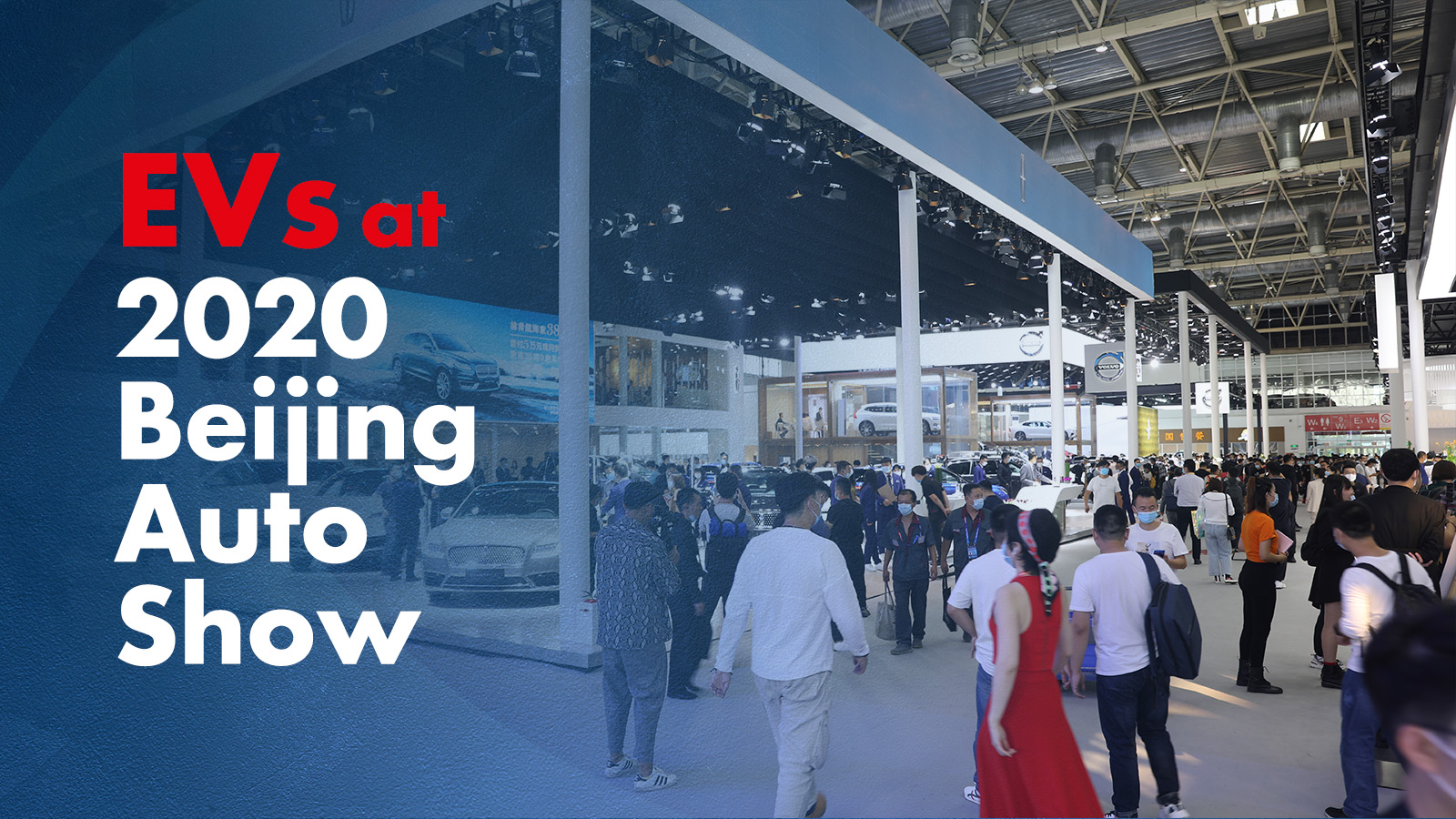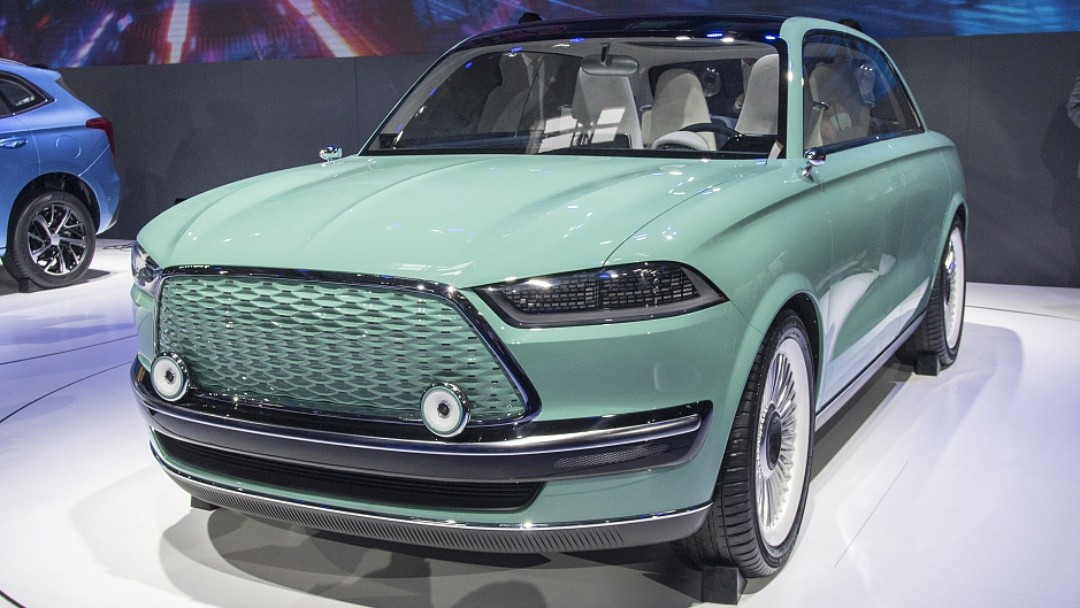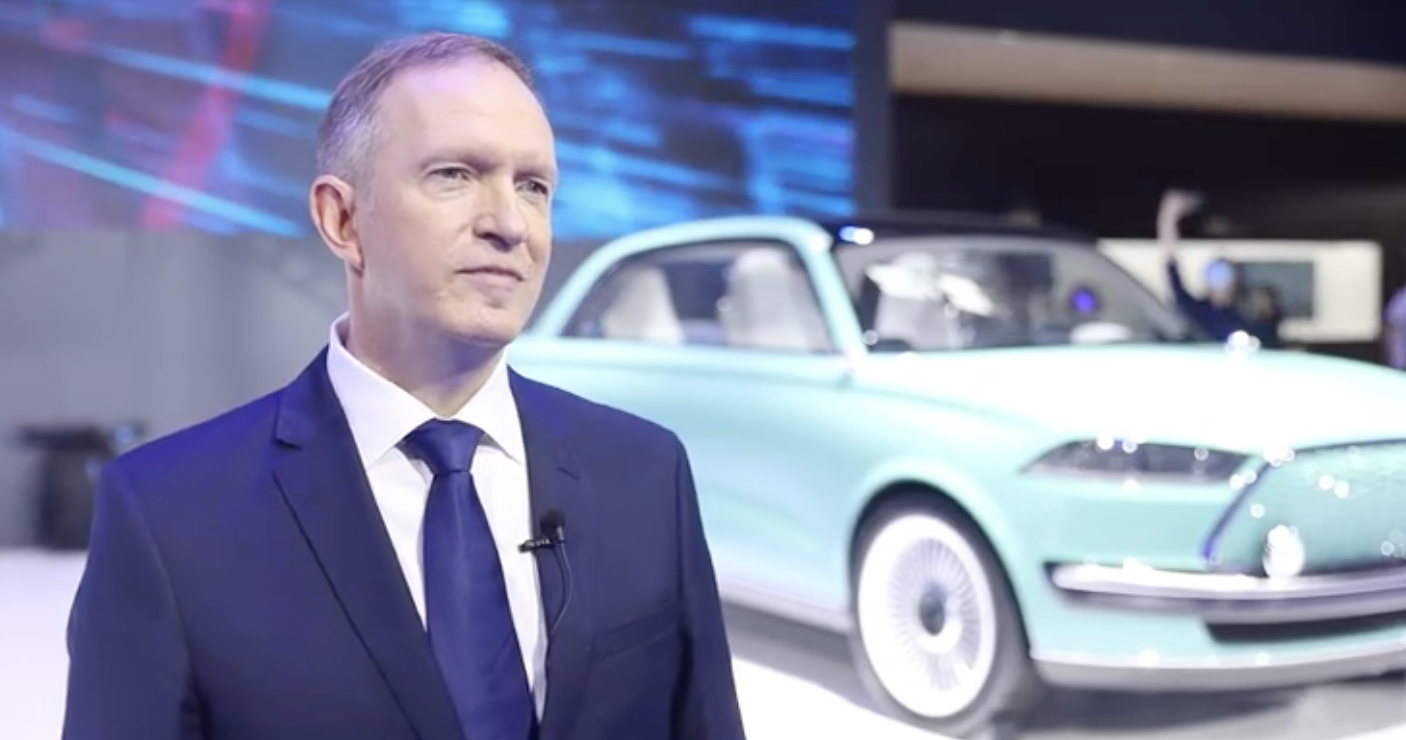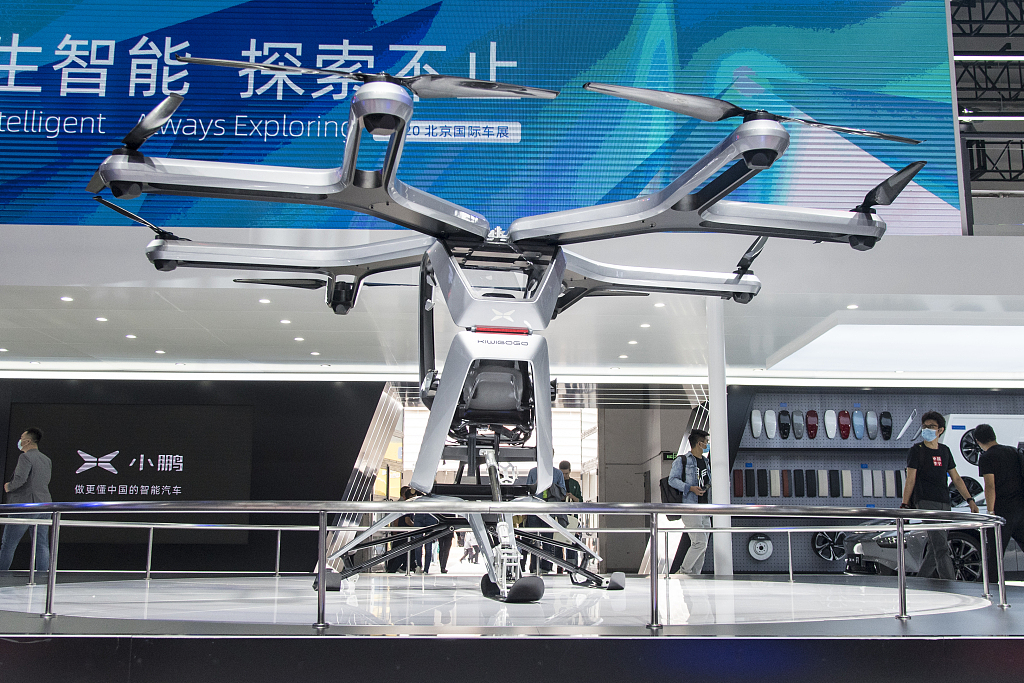00:53

International and domestic automakers prominently displayed electric vehicles at the ongoing Beijing Auto Show, the first international auto show of this year since the coronavirus outbreak.
China's automobile market rebounded swiftly from the aftermath of the economic downturn unleashed by the COVID-19 pandemic. With the outbreak brought under control in the country by April, demand is steadily rising.
Carmakers are cautiously optimistic about the future, with concerns about when the pandemic will end completely, but they do not want to fall back on their plans to grab a share of China's booming EV market.
Domestic automaker Great Wall Motors (GWM), whose SUV sold well in China, unveiled a three-box sedan at the Beijing auto show. The concept car has a retro look but has been named "Futurist."

Great Wall Motors' concept model Futurist is displayed at Beijing auto show on September 26, 2020. /VCG
Great Wall Motors' concept model Futurist is displayed at Beijing auto show on September 26, 2020. /VCG
Phil Simmons, GWM global design director and vice president, announced at the press conference that the company will shift its "product-oriented thinking into user-oriented thinking."

Phil Simmons, GWM Global Design Director and Vice President, speaks to CGTN at Beijing auto show on September 26, 2020. /CGTN
Phil Simmons, GWM Global Design Director and Vice President, speaks to CGTN at Beijing auto show on September 26, 2020. /CGTN
The Futurist echoes Simmons' speech, which ended with "My destiny, you decide." It can be hybrid or electric, depending on feedback from the market, he told the media.
Aimed at exploring design language that combines retro with high-tech and also time travel, the concept car has a single large dial behind the steering wheel and a touchscreen on the dash.
Global brands also voiced their ambitions for China's EV market with local production plans.
Audi made the Asia debut of their Q4 e-tron concept at the event and its electrification milestone will be produced in China soon, with Audi's local partner FAW.
Jaguar Land Rover also launched its plug-in hybrid Discovery Sport P300e at the show as its first made-in-China new energy model that will be manufactured in its plant in east China's Jiangsu Province.
Nissan's crossover EV Ariya made its China debut at the event. This is the first time Ariya has been shown publicly outside Japan after being unveiled in Yokohama.
In addition to introducing Ariya to the Chinese market next year, Nissan plans to launch nine EV models in China by 2025, Shohei Yamazaki, senior vice president of Nissan and chairman of the company's China Management Committee, said at the auto show.
Some local EV start-ups did not attend the auto show, including Qiantu, Aiways and Li Auto, which just got listed this summer on the Nasdaq index. Some other leading EV start-ups are participating in the show without new models but with new plans.
Xpeng, which was also listed in New York in August, announced its exports to Europe began in late September and attracted attention at the show with their first-generation prototype of a flying vehicle.

Xpeng's first-generation prototype of a flying vehicle is displayed at Beijing auto show. /VCG
Xpeng's first-generation prototype of a flying vehicle is displayed at Beijing auto show. /VCG
Looking like a large version of human-carrying drone, the prototype is part of the company's long-term research and development.
New York-listed Chinese EV start-up Nio introduced its battery rental plan, which was launched in August, which will reduce costs for their drivers.